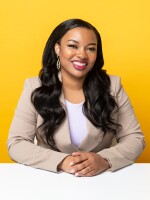AILSA CHANG, HOST:
President Trump is distancing himself from Julian Assange's organization WikiLeaks.
(SOUNDBITE OF PRESS CONFERENCE)
UNIDENTIFIED REPORTER: Mr. President, do you still love WikiLeaks?
PRESIDENT DONALD TRUMP: I know nothing about WikiLeaks. It's not my thing.
CHANG: That's the president today answering questions at the White House. But there was a time during the 2016 election when Trump embraced the group known for leaking government and personal information from political figures.
(SOUNDBITE OF ARCHIVED RECORDING)
TRUMP: They got it all down, folks - WikiLeaks.
I love reading those WikiLeaks.
WikiLeaks.
WikiLeaks, I love WikiLeaks.
CHANG: So there has been a clear shift in the president's attitude towards WikiLeaks. And NPR White House reporter Ayesha Rascoe joins us now to talk about it. Hi, Ayesha.
AYESHA RASCOE, BYLINE: Hello.
CHANG: All right, so 2016, the president loves WikiLeaks. 2019, he knows nothing about it. What is going on here?
RASCOE: So in the time between that, he became president, and now he deals with leaks every day.
CHANG: Right.
RASCOE: So his administration has been the subject of a number of leaks to the media - significant ones, details of calls Trump had with foreign leaders, conversations he's had in the Oval Office. All of this has been leaked. So with that big kind of uptick, what we've heard from Trump is complaints saying, you need to go after these people releasing government information; they need to be prosecuted.
When it comes to WikiLeaks in particular, Mike Pompeo, when he was Trump's head of the CIA, actually called WikiLeaks a hostile intelligence service. Of course before that, Pompeo, also during the 2016 campaign, repeatedly cited emails released by WikiLeaks to attack Hillary Clinton.
So you have this dynamic where Trump and others use the leaks when they were kind of beneficial to them but have now taken a different position. Now, back in 2017, Trump defended this change in posture, basically saying that the Democrats' emails that were released were not classified information and so that it was different when he was talking about those emails.
CHANG: Now, what did the special counsel investigation reveal about connections between people in Trump's orbit, like Roger Stone, and WikiLeaks?
RASCOE: Yeah, so the special counsel's full report obviously has not been released yet.
CHANG: Sure.
RASCOE: But we do know that a longtime associate of Trump's, Roger Stone - he was indicted under that probe. And that indictment alleged that Stone was in regular contact with WikiLeaks and the Trump campaign around times when emails were being released. And so that really kind of touches on this kind of larger issue at play because there are questions of WikiLeaks' connections to Russia and the 2016 election. So at this time, it's really not that surprising that Trump wants to put a lot of space between himself and any issue related to WikiLeaks.
CHANG: Yeah. So obviously all of this overshadowed a meeting between President Trump and South Korean President Moon Jae-in at the White House today. And can you just very briefly tell us what did they say about North Korea?
RASCOE: So basically they - both men had very positive things to say about each other, and they both expressed optimism about the future of North Korea and denuclearization. Here's what Trump said.
(SOUNDBITE OF ARCHIVED RECORDING)
TRUMP: I can speak for myself, and I think I can speak for President Moon. We think that North Korea has tremendous potential and - really, potential under the leadership of Kim Jong Un. Let's see how it all works out.
RASCOE: So Trump is saying that he's optimistic, but he also said right now he's not planning to lift any sanctions on North Korea at this point even to allow these kind of joint economic projects between the North and the South, which is what Moon had kind of wanted. So he's saying that he's not ready to do that just yet.
CHANG: All right, that's NPR's Ayeshe Rascoe. Thanks, Ayesha.
RASCOE: Thank you. Transcript provided by NPR, Copyright NPR.



